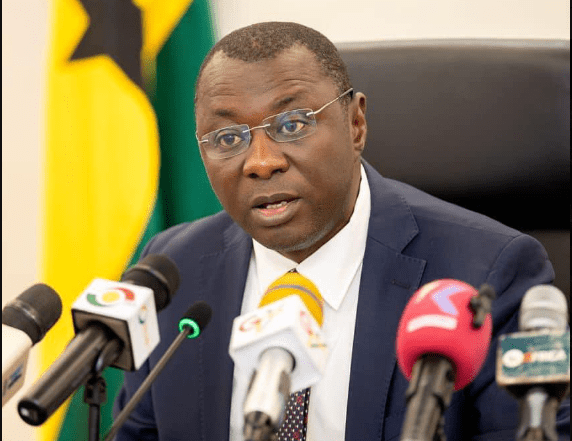The Finance Minister, Dr Mohammed Amin Adam is leading Ghana’s delegation to the African Development Bank Group (AfDB) 2024 Annual Meetings in Nairobi, Kenya.
The meeting is being organised under the theme, “Africa’s Transformation, the African Development Bank Group, and the Reforms of the Global Financial Architecture”
The Bank Group’s 2024 Annual Meetings will be held from today May 27 to 31st.
Despite a sustained economic growth over the past two decades, Africa’s economic transformation remains incomplete. Africa’s real GDP increased annually by 4.3% between 2000 and 2022—compared to the world’s average of 2.9%, and many of the world’s 10 fastest growing economies were in Africa. However, despite this solid growth performance, the structure of African economies has not significantly changed over the past two decades, with agriculture, industry, and services sectors accounting on average for respectively 16, 33, and 51% of overall Africa’s GDP over 2000-2022. This was like the levels achieved in the 1990s.
Manufacturing employment has also been declining because of a premature deindustrialization. Despite the increase in the number of manufacturing jobs, from 20.2 million in 2000 to 33.3 million in 2021, the sector contributes less than 10% of total employment. Manufacturing employment accounted for 7.7% of Africa’s total employment in 2000 (about half the world’s average of 14.6%). In 2021, this share declined to 7.4% (against global average of 13.6%). Africa’s manufacturing sector employment also fares less favorably against other regions. The continent accounts for a small fraction of world manufacturing jobs: 6.9% on average over 2000-2021, against 52.6% in East Asia and Pacific and 7.9% for Latin America and the Caribbean.
As a result, the continent is off track in achieving almost all SDG targets by 2030. Extreme poverty remains the highest in the world (33%)—compounded by both the COVID-19 pandemic and the Russia’s invasion of Ukraine (AEO 2022 and MEO 2023). If no action is taken to reverse the poverty curve, close to 9 out of 10 (or 87%) of the world’s extremely poor people will be in Africa by 20304. Furthermore, Africa remains the second—most economically unequal region in the world, after Latin America and the Caribbean, and has the lowest life expectancy at birth, and lowest years of schooling globally. Over 600 million people have no access to electricity and more than 600,000 die annually from indoor air pollution associated with use of biomass (charcoal) for cooking.
Accelerating Africa’s economic transformation is thus fundamental for socio-economic transformation and sustainable development. This will however require substantial resources. The cost of achieving the SDGs by 2030 in Africa is estimated at about US$1.3 trillion a year, equivalent to 42% of Africa’s US$3.1 trillion GDP in 2023 (AEO 2023). With Africa’s population expected to grow by 43% over 2015-2030, the continent’s SDG financing gap could reach US$19.5 trillion by 2030. Prior to the outbreak of the COVID-19 pandemic, the Bank’s estimates put Africa’s infrastructure needs alone at US$130 billion-US$170 billion a year, leaving an annual financing gap of US$68 billion—US$108 billion (AEO 2018). This gap is likely to have increased since then due to the additional financing needs caused by COVID-19 and other economic disruptions. On climate finance, the Bank estimates Africa’s finance gap at approximately US$213.4 billion on average annually until 2030 (AEO 2023).
The current global financial architecture will not deliver these resources. Therefore, the need to reform the international financial architecture to facilitate structural transformation and deliver the much-needed resources to finance the SDGs cannot be overemphasized. This explains the choice of the theme of the 2024 Annual Meetings.
This theme will allow the Bank to serve as a convenor and thought leader on the twin issues of structural transformation and development finance in Africa. The proposed 2024 Annual Meeting Knowledge Events will help the Bank Group to attract global thought leaders to discuss, as well as provide explicit and practical recommendations on how Africa can mobilize sufficient resources to close its development financing gap and accelerate structural transformation across countries and regions.
It will also allow the Bank’s Governors to share their views on the best options to reform the international financial architecture to make it fit for Africa’s development. Coming in the year marking the 60th anniversary of the establishment of the African Development Bank, this theme will help the Bank to shape its socio-economic transformation agenda for Africa going forward.








![Stonebwoy holds star-studded party for ‘5th Dimension’ mega album [Video]](https://ghananewss.com/storage/2023/04/stonebwoy-partyy-100x75.jpeg)







